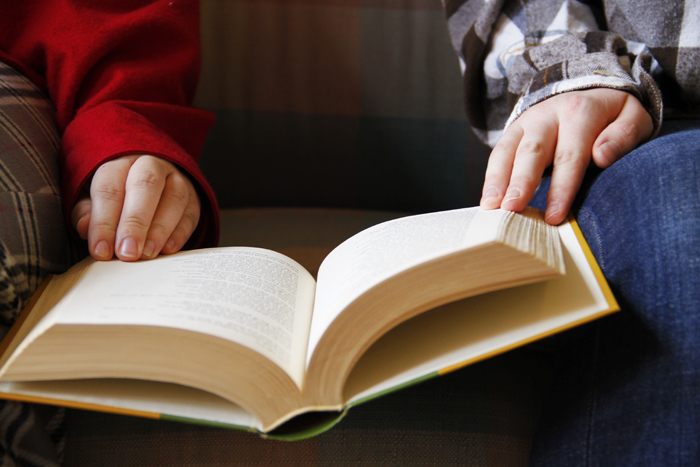Introverts v. Extroverts: Understanding your partner’s personality
November 2, 2016
Dating in college is hard, no matter who you are. Balancing school, work and social life is a skill within itself, but personality makes everything more complicated.
Personality is that over-arching temperament that determines behavior, according to Psychology Today. Personality is important and unavoidable — every single person has one and it affects every single relationship a person has.
In particular, whether or not a person is an introvert or an extrovert. This part of one’s personality dictates many aspects of a person’s social behavior, especially dating.
According to Psychology Today, an introvert is “drained by social encounters and energized by solitary, often creative pursuits” which can be misunderstood as social anxiety. However, introverts can socialize easily when they want to.
Psychology Today also defines an extrovert as someone who “zip(s) through the world in search of novel experiences, social connections and leadership opportunities.” An extrovert seeks adventure because they’re naturally social and talkative.
In a nutshell, an introvert is a reserved person and an extrovert is an outgoing person.
For extroverts, they can approach someone in class or at a party and ask him or her out on a date on the first encounter. That’s not to say that all do, but it’s more likely.
On the other hand, introverts tend to find friends that slowly develop into something more. From the people I know who are introverts, this is common. An introvert is less likely to put him or herself on the line for rejection.
Stepping into a relationship with a solid friendship is more comfortable for someone who prefers to stay in the background.
As an introvert myself, I never cared about dating or tried to go out of my way to find a date. However, I now find myself in a relationship with someone I was first a friend with.
This relationship developed rather slowly, we took six months to finally admit our feelings to each other. We would get together probably four or five times a week in those two months prior to the acknowledgement of our feelings.
Needless to say, we knew each other pretty well. We knew each other’s favorite bands, books, and movies. We knew each other’s majors, what stressed the other out, and the favorite thing they do to relax.
We formed a meaningful bond before we decided to step into a relationship.
Now that I am in this relationship, I am forced to adapt parts of my own personality to accommodate another person, who also happens to be an introvert.
Many of these changes occur when expressing feelings or just communication as a whole. Not just for me, but for my partner as well. We both find it difficult to show our feelings; it’s just part of who we are.
Even before my relationship, my social life as a whole was suffering and I knew I didn’t necessarily like being around people, but I couldn’t place what made me different from everyone else.
There’s more than introversion and extroversion at play in a person’s personality. To combat my introversion, I needed to discover how the aspects of my personality work together to make me who I am.
Somehow I found the Myers-Briggs Type Indicator (MBTI), a survey that evaluates a person’s personality with four parts and two possibilities to make up the personality type. In total there are 16 personality types.
The first category is introvert and extrovert, the second is intuition and sensing, the third is feeling and thinking, and the fourth is perceiving and judging. That being said, the test gives the percentages of preference in each category.
For example, I am an INTJ, which stands for introvert, intuition, thinking, and judging. I am 41 percent introvert over extrovert, 12 percent intuition over sensing, three percent feeling over thinking, and 34 percent judging over perceiving.
Knowing your percentage of preference allows you to understand if you may slink into the other side of the category. For the most part, I have moderate or very little preference over either category, but that’s not the same for everyone.
That’s why I love this test — it accounts for the differences between people, even within a personality type.
Now I can take my personality type and look at websites like 16 Personalities to see the application of my personality in my behavior and thought processes.
Sometimes it’s easier to see something written down in words to fully understand who you are. The knowledge of knowing your inner workings allows you to understand your interactions and tendencies better.
My advice for dating as an introvert is to know who you are before you choose to share your life with someone else. The MBTI test was — and still is — pivotal to my understanding of my personality, and I’m willing to say it’ll help anyone with theirs.
The MBTI test will open doors into your personality. Spend time thinking about what your personality type means and how you see it in your everyday life. The application of the personality type is part of understanding yourself.
No introvert is exactly the same, so there’s no set dating advice to give an introvert.
Dating for an introvert presents a newfound challenge: allowing another person fully and whole-heartedly into all aspects of your life, including the stress created by being a college student.
It’s easy to keep people at an arm’s length, but relationships, friendly and romantic, are important in a healthy life in the mayhem of college. Take a deep breath and don’t worry — you’re significant other is out there somewhere.





















